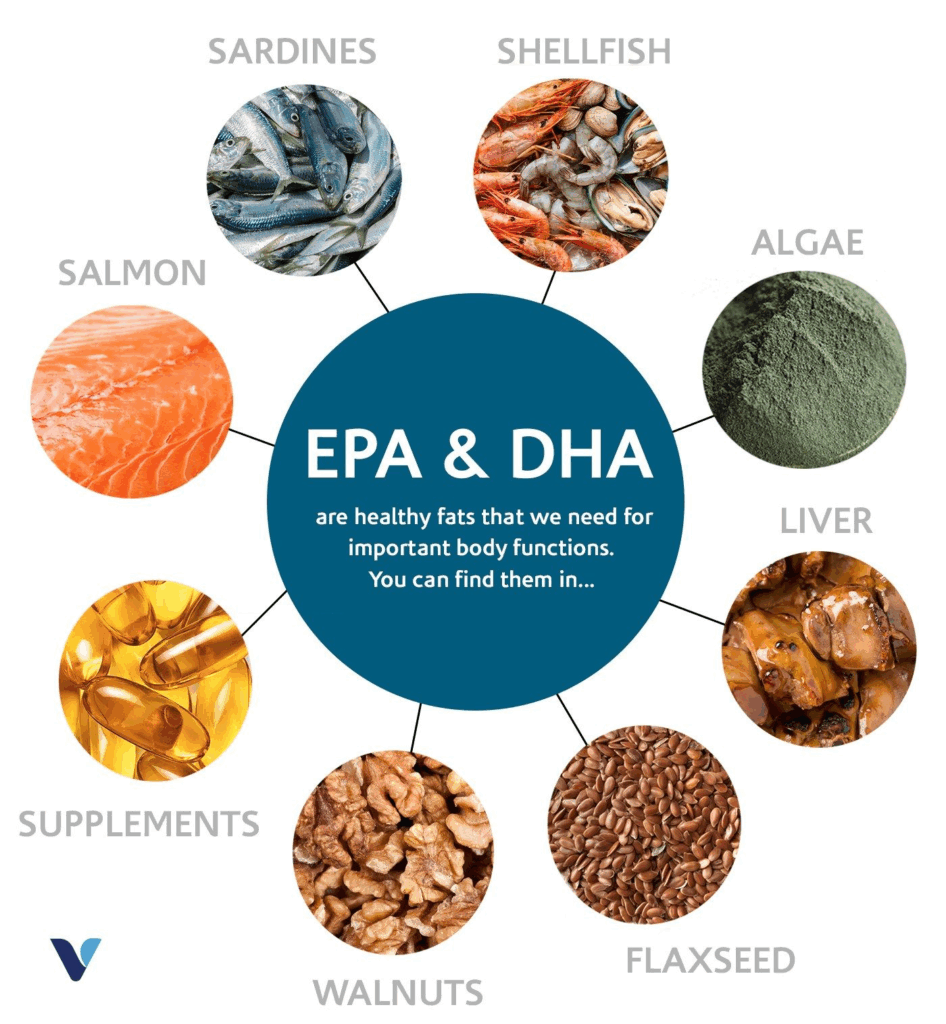What’s In Your Fish Oil?

This month we are highlighting Omega-3 fatty acids. Let’s dig in!
Discovered over 90 years ago, Omega-3 fish oil is one of the best supplements a person can take for overall health, wellness and lowering risk for developing disease.
Fish oil contains essential fatty acids. Omega-3s are considered essential fatty acids, meaning our bodies need it to thrive and function properly but can’t make it on their own. We have to get these fatty acids and vitamins from our food or from a supplement.
One of the most important benefits of Omega-3s is its ability to help decrease inflammation in the body. Here are some other health benefits:
Lowering your risk of developing heart disease
Ensuring proper infant health and neurodevelopment
Preventing certain types of cancers
Lowering the risk of Alzheimer’s disease
Supporting healthy cognitive function in aging adults
Decreases the occurrence of age-related macular degeneration
Pain relief for some forms of arthritis
There are 11 different Omega-3 fatty acids but the ones most studied and most essential to our bodies are EPA and DHA.
EPA stands for eicosapentaenoic acid. EPA helps support your body’s immunity. The small molecules that make up EPA are responsible for a lot of different physiological processes in the body, and they help to reduce your body’s inflammation levels. Chronic low-level inflammation is one of the first markers of dis”ease” in the body.
EPA is also useful in children with ADHD
EPA may also assist with hot flashes in menopausal women
EPA could help with your mood, and lessen or even alleviate symptoms of depression
EPA is found in fatty cold water-fish – most abundant in salmon, herring, eel, shrimp, and sturgeon. Some grass-fed meat and dairy products contain EPA but not as much as fish. They recommended daily serving is 2-3 servings of fatty fish per week.
DHA, or docosahexaenoic acid, is considered the most important fatty acid. It is made in our bodies but only in very small amounts. We need to get the rest of what we need from food or supplements.
DHA is a major component of the eyes, brain, and nervous system.
It is especially important for infants and children – Those not getting enough in their diets are at a higher risk of developing learning disabilities.
DHA helps skin and eyes to function properly and supports skin and eye health.
DHA has brain boosting abilities for adults as well. Research has shown that higher circulating levels of DHA in adults support cognitive function and can lower the risk of dementia and Alzheimer’s.
DHA is found in fatty, cold-water fish (the same ones that contain EPA) and some algae. Grass-fed animal products and dairy also contain a small amount of DHA.
ALL FISH OILS ARE NOT THE SAME!
Unfortunately, the market has become saturated with Omega-3 fish oils of varying quality. One size does not fit all. Quality fish oil can be a little more expensive but with all the health benefits you want to make sure you get the best bang for your buck. Here are a few things to look for when picking a quality Omega-3 supplement.
AMOUNT
“Fish oil” and “Omega-3s” are often used interchangeably, but they are not exactly the same. While fish oil contains Omega-3s, not all fish oils have the same concentrations of Omega-3s in them. For example, a supplement might claim to have 1200mg of fish oil in each pill, but that doesn’t tell you anything about how much Omega- 3 it contains. Look for products that clearly label amounts of EPA and DHA Omega-3s (at least 250-500mg per serving)
FORM of OMEGA-3
When we eat fish, we absorb the EPA and DHA in the form of triglycerides. This is the natural form of Omega-3s for our bodies and the easiest for us to metabolize. During the oil refining process, the triglycerides often become converted to ethyl esters. Ethyl esters are harder for our bodies to absorb and are more prone to oxidation. CHOOSE triglyceride base Omega-3s.
THIRD PARTY TESTED
Supplements that undergo third-party testing are independently vetted for purity and potency to ensure that consumers are getting the pure product- Should be on the label.
SOURCE OF FISH
Check the ingredient list to see if the fish and its source are listed. Most fish that are naturally high in Omega-3s are also some of the cleanest fish you can eat. A high-quality fish oil supplement brand shouldn’t be afraid to tell you where the fish is sourced from. (Best sources off the U.S. coast, Norway, Iceland)
LEMON OIL
Lemon oil helps neutralize the strong odor that comes from fish oil, the culprit behind the infamous “fish burp” Avoid the fishy by finding a product that includes lemon flavoring or lemon oil in its formula.
CHECK FOR FRESHNESS
Fish oils are prone to oxidation and once they start to spoil, they lose their health value. Your fish oil supplement should include an antioxidant to help protect the oil from spoiling. Check the label for ingredients like Vitamin E, Vitamin C, or rosemary oil, as supplements with these ingredients are less likely to be spoiled. You should also check the expiration date. The older the supplement, the more likely it has started to oxidize. Keeping your fish oil supplements in the fridge or freezer will keep them fresh.
At Being Well, we continually strive to provide you with the highest quality supplements available. Thanks for allowing us to help you on your journey to Beeing Well!
